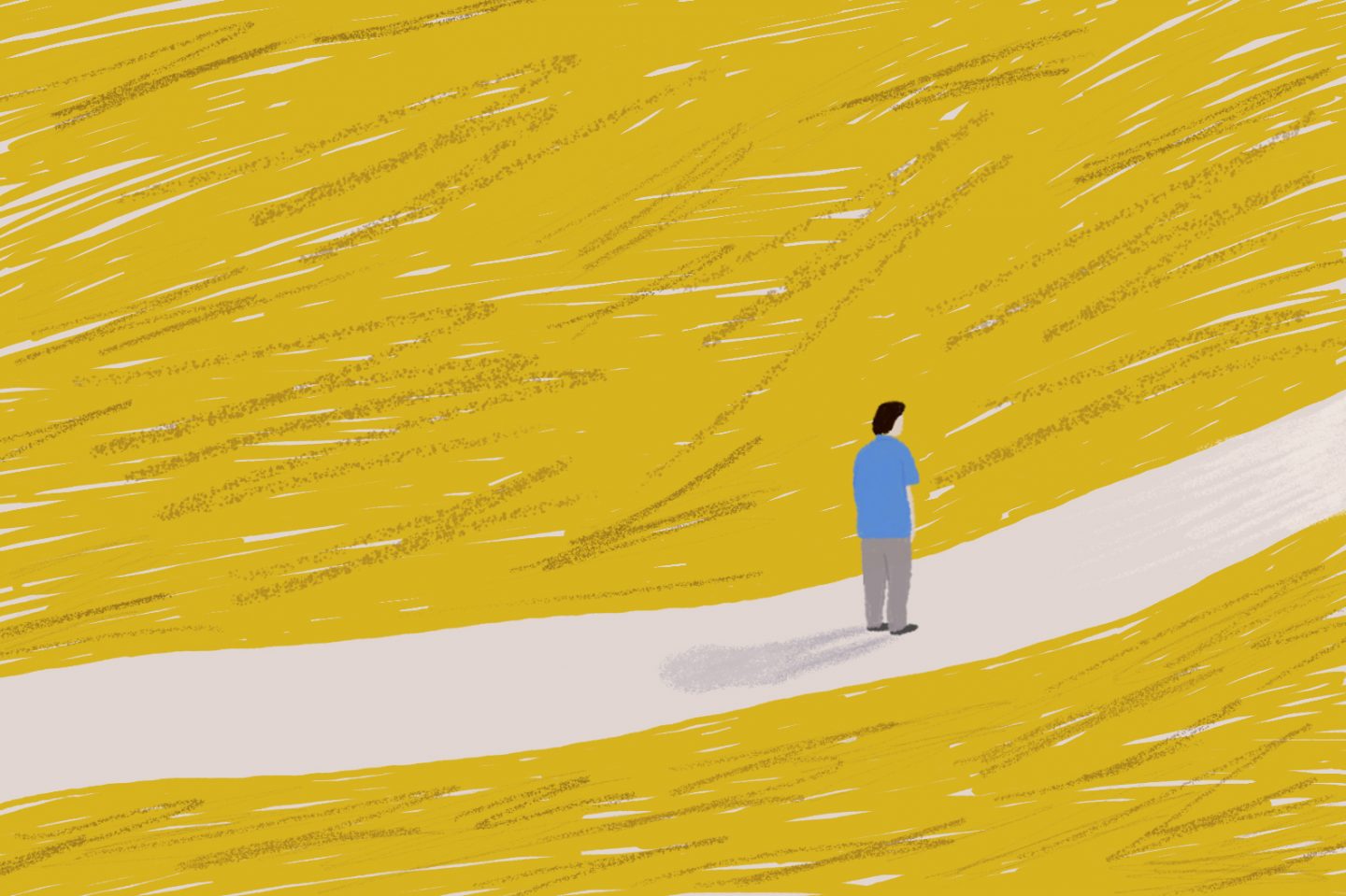Loneliness seizes us in unexpected seasons.
I recently got to know a pastor who, after years of blissful marriage, suddenly experienced loneliness when her husband dived into depression. To protect him, she couldn’t tell anyone about it. Meanwhile, she had to mother an autistic son and an infant daughter almost as if without their father. Suddenly, she lost her soulmate.
Loneliness is universal.
Songs, poetry, fiction, films, art and works of human expression from generations past to date echo this deep cry of the human heart. “All the lonely people, where do they all come from? … Where do they all belong?” sang The Beatles; “Don’t want to be all by myself,” Eric Carmen admitted; “Lonely, I’m so lonely, I have nobody for my own,” ached Akon.
Loneliness does not discriminate between male and female; married and unmarried. If loneliness is a black hole in people’s hearts, we could imagine all the lights of our city’s night scape violently consumed into the vacuum.
Mother Theresa once said, “Loneliness and the feeling of being unwanted is the most terrible poverty.” And that loneliness is experienced when we do not have deep relationships which meet our fundamental needs.
It is a pervasive experience no doubt, with attendant mental health consequences.
Singaporeans are no exception. Social isolation is real and has a palpable impact on us. Ironically, we are more distant from one another despite being more connected through social media.
In the past year, a team has been working to put together an “unconference” on faith and loneliness: We’ve named it “Table For One”. We heard from people who experienced loneliness in their marriage, in caregiving to a depressed husband and autistic son, in struggling with same sex attraction, in singleness, and in the aftermath of losing a newborn child. And what did we learn?
We learnt that loneliness is not measured by the number of people around us. It can grip us even when we are surrounded by family and friends. We learnt, too, that we can be alone but not feel lonely.
So what is the cause of our loneliness? What is the unmet need?
Is it a physical need? There are professional cuddlists who can fulfill that need for a fee. But can cuddling buy us intimacy?
Is it sexual intimacy? I know a young man who engaged the services of prostitutes – in vain, he eventually admitted. It was a numbing experience, and never seemed to erase the loneliness.
Is it about making ourselves known? We think about the celebrities, bloggers, and influencers – their lives are on perpetual display on social media, but does it create meaningful relationships?
In The Meaning of Marriage, Timothy Keller wrote that “To be loved but not known is comforting but superficial. To be known and not loved is our greatest fear. But to be fully known and truly loved is, well, a lot like being loved by God. It is what we need more than anything. It liberates us from pretence, humbles us out of our self-righteousness, and fortifies us for any difficulty life can throw at us”.
To be loved and to be known. Perhaps that is the ubiquitous human condition. The void within us that gasps for life from the people around us.
In my formative teenage years, I was lonely for a long time despite having friends and family. I turned to destructive habits to fill them by surrogate, but in vain. At 17, I jumped into a relationship in which we both sought in each other what could possibly satiate the void in us.
We are stuck in endless loops of transactions to purchase relationships, attention and significance. Then we burn out.
But to grasp at what little there was to take, we had to give. Give a lot of time, energy, affections and money, all of which we scarcely had to begin with. At some point, when the circumstances made it incredibly difficult to continue sustaining such a toxic self-serving quid pro quo, when the giving was disproportionately more than the little for taking, we crashed and burned.
In the course of exploring the issue of loneliness, I was reminded of this past relationship and realised how the world confronts loneliness. We take. But by the rules of the world, we must give to take. This quid pro quo happens in all sorts of relationships.
We are stuck in endless loops of transactions to purchase relationships, attention and significance. Then we burn out. We can only give that much of ourselves before we run dry.
As our team was praying one evening over the “Unconference”, I received a word – “loophole”. Then it hit me. We need a loophole. Something to break the endless loops of transactional relationships in our lives.
Jesus is our loophole. He is God’s love manifested. He came to give without taking from us. Instead, He gave His friendship and sacrificial, unconditional love so that we may receive so abundantly we become an overflowing fountain that we can then give to others without taking.
In doing so, we are not only satisfied by the depth of relationship in which we can love and be loved, know and be known by God, but also our relationships with others in which we give. We are never at a loss, for even when we are not loved or known in return, we remain loved and known by God. And in this process, we come to love and know God (1 John 4).
Without Christ, our loophole, any purported cure to loneliness will ultimately be self-destructive. An aggregation of starving selves disguised as community will devour itself up.
We’ve discovered that the only thing of worth we can bring to the table for there to be satisfying community is our own satisfying relationship with God.
A hierarchical community will ultimately lose its adherents if the head man serves his self-interest. The form of these communities may persist, but the inner void of loneliness will manifest itself in varied ways. Bitterness. Frustration. Possessiveness. Jealousy. Selfish ambition. Pride. Destructive speech. These are the things which the apostles and early church leaders rebuked against, which they declared to be buried in the past life of the believer, in the light of the Gospel of grace in Jesus (see for instance, Romans 12-13; Ephesians 2 & 4; Galatians 5-6; Philippians 2; Colossians 3; Titus 3; 2 Peter 1; 1 John 3-4; James 3:16; James 4; and the entire book of Jude).
In sharp contrast, we discover a perfect community of mutual love from the Scriptures: the holy trinity of Father, Son and Spirit. They each give to the other endlessly, abundantly and freely. Indeed they are such a perfect community that they are “one” (Deuteronomy 6:4).
What does that mean for a Christian? And why do many Christians sing “Christ is enough for me” and yet feel the gnaw of loneliness in church surrounded by friends and siblings in Christ? And why do the Christian communities many of us are part of, or implored to be part of, don’t seem to satisfy or be all that we hope for them to be.
From the many life stories and teachings we’ve heard in the process of preparing for ‘Table For One”, we’ve discovered that there are paradigm-shifting truths, rhythms of grace and life-giving practices which Christians and Christ-centred communities have embraced, and which give life and love. They’re all founded on a ceaseless, relentless, relationship with God. In these, people who once struggled with loneliness could then struggle in joy, be filled, be loved and be known.
We’ve discovered that the only thing of worth we can bring to the table for there to be satisfying community is our own satisfying relationship with God. The beauty is in the paradox, and this paradox we believe, is of the Kingdom.
The question that we’re left with is this: Will we live up to this calling by being Jesus’ hands of mercy tending to the broken-hearted; in bringing the warm embrace of His family to those shivering in the cold; in preparing a feast for those whose greatest poverty is loneliness?
We strive to live up to it. Our prayer is that you would too.
Table For One: An Unconference on Faith and Loneliness will begin multiple runs in 2017. If you are keen to find out more, feel free to email us at [email protected] / [email protected] / [email protected].










